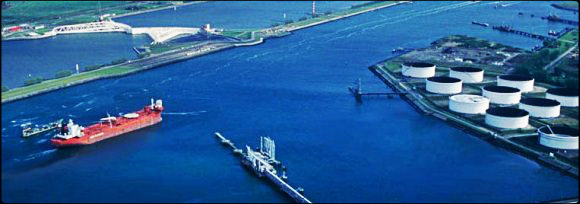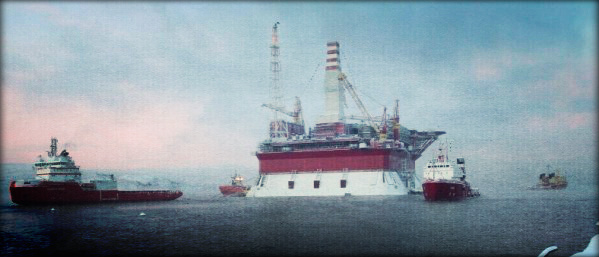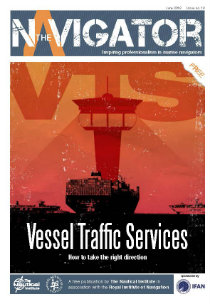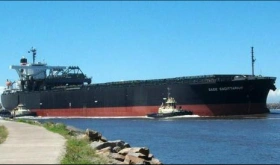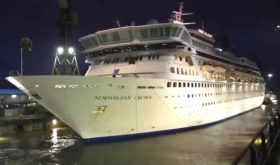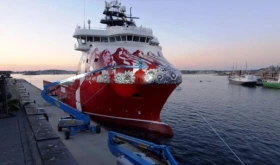After a series of headline-grabbing statements about the possibility of “switching” European consumers over to American gas, the US media hastened to announce the launch of Obama’s oil and gas offensive against Russia. In reality the EU is not currently prepared, neither technically nor in terms of price, to buy its energy resources from the US. It would take at least ten years to adapt even the technically advanced German energy system to work with American gas supply. In a crisis, when it is particularly urgent to see a quick return on an investment, such projects are unrealistic.
Russian Sanctions and the Negative Effect on Global Energy Security
Flammable Mists from Accidental Hydrocarbon Releases Offshore
Offshore oil and gas installations store and process very large inventories of different hydrocarbon mixtures. The crude oil/natural gas is pumped from the seabed and separated by distillation at different pressures and temperatures. Therefore the installations need to heat and pressurise the crude, which requires further non-process hydrocarbons for fuel and to act as lubrication and heat transfer fluids.
Rosneft Starts Geophysical Surveys in Eastern Arctic
Aerial gravity-magnetic surveys began at the Yuzhno-Chukotsky License Area in the Eastern Arctic to establish the field’s subsurface structure. Rosneft and ExxonMobil have agreed to a framework for jointly exploring six license areas in the Chukchi and the Laptev Seas, namely the Ust-Lensky, Ust-Oleneksky, Anisinsko-Novosibirsky, Yuzhno-Chukotsky, and Severo-Vrangelevsky 1 and 2 areas. Three airplanes carrying magnetometric and gravimetric equipment will by the end of 2014 survey all the six license areas with a total area of 440,000 square meters.
Forecast of Global Exporters and Importers of Energy
Maintaining a robust global energy marketplace is critical to meeting rising global energy demand. The backbone of the global energy marketplace is free trade, which enables energy to move across various boundaries by pipeline, ship, railway, or in the case of electricity, by transmission lines. Oil and natural gas are the most widely traded energy sources, but other forms of energy, including coal, electricity and some renewable fuels, are also actively traded on the international market.
Faroe Petroleum Audited Preliminary Results for 2013
Faroe Petroleum, an independent oil and gas group focused on oil and gas exploration and production in Norway, the Atlantic margin and the UK North Sea, announced today its audited Preliminary Results for the year ended 31 December 2013.
Russia Chooses ‘Soft’ Approach to the Arctic
Recent initiatives in the Arctic Council show that Arctic nations have chosen business as a universal language of rapprochement. Russia’s limited military presence should be viewed as an opportunity to build a safer economic environment without prejudicing the security of anyone.
Tanker Pollution Busted by Satellite Images
The UK Maritime and Coastguard Agency (MCA) issued a press notice regarding the tanker pollution conviction after use of satellite imagery as the primary evidence. At a hearing at Truro Magistrates Court, the owner of a tanker paid a total of £22,500 in fines and costs after pleading guilty to a breach of UK maritime pollution legislation.
Over-Engineering Safety?
2013 marks the 25th anniversary of one of Britain’s most tragic oil and gas incidents. The explosion that destroyed the Piper Alpha production platform in the North Sea in July 1988, killed 167 men and changed the way that the UK approached industry safety altogether. The anniversary of this sobering event is causing the British oil and gas industry to evaluate the progress it has made in safety and risk over the past quarter-century, and the participants in a GL Noble Denton’s roundtable discussion that took place during last March 2013 offered strong views on how far the sector has come.



